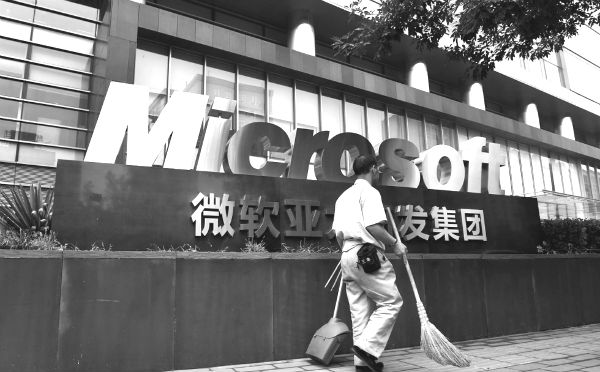Chinese authorities reportedly have told Microsoft (MSFT) not to interfere with its investigation of allegations the company is engaging in anti-trust sales activities for its Windows and Office products in China.

Chinese authorities reportedly have told Microsoft (MSFT) not to interfere with its investigation of allegations the company is engaging in anti-trust sales activities for its Windows and Office products in China.
A week ago Chinese investigators and police raided Microsoft’s offices in Beijing, Chengdu, Guangzhou and Shanghai, questioning company managers and seizing computers, contracts, financial materials and internal emails, according to reports. Chinese regulators also have interviewed Mary Snapp, a Microsoft deputy general counsel, as part of the investigation, reports said.
China's State Administration for Industry and Commerce (SAIC), one of a number of government agencies that monitor anti-trust activities, subsequently posted a note on its website warning Microsoft not to hamper its investigation.
"SAIC warn[ed] Microsoft [that it] should strictly abide by Chinese laws and may not interfere in any way [or] hinder investigation of the case," the message reportedly said.
Microsoft publicly has vowed to "address any concerns the government may have." The SAIC also said Microsoft has promised to honor Chinese laws and not interfere with its investigation.
Anti-Trust Vendors Deny China Ban
Separately, reports that China has banned security products from Symantec (SYMC) and Kaspersky Lab for sales to government agencies have been refuted by both companies, despite the fact that neither vendor appears on the approved procurement provider list.
But despite the exclusion, Symantec reportedly said it still could sell its anti-virus products to the Chinese government.
"It is important to note that this list is only for certain types of procurement and Symantec products are not banned by the Chinese government," the company said. "We are investigating this report and will continue to bid for and win governments projects in China."
Kaspersky acknowledged the Chinese government had "temporarily rescinded" its sales rights but contended “this restriction only applies to national-level institutions whose funding comes from the central government procurement budget, and does not include regional governments or large enterprises.”
The procurement center, which supplies government agencies with a list of approved anti-virus vendors, currently lists only domestic Chinese providers Qihoo 360, Kingsoft and Beijing CA-Jinchen Software.
Last year, foreign vendors Kaspersky, ESET, Panda Security and Trend Micro appeared on the approved list, according to reports.
About the Author(s)
You May Also Like


